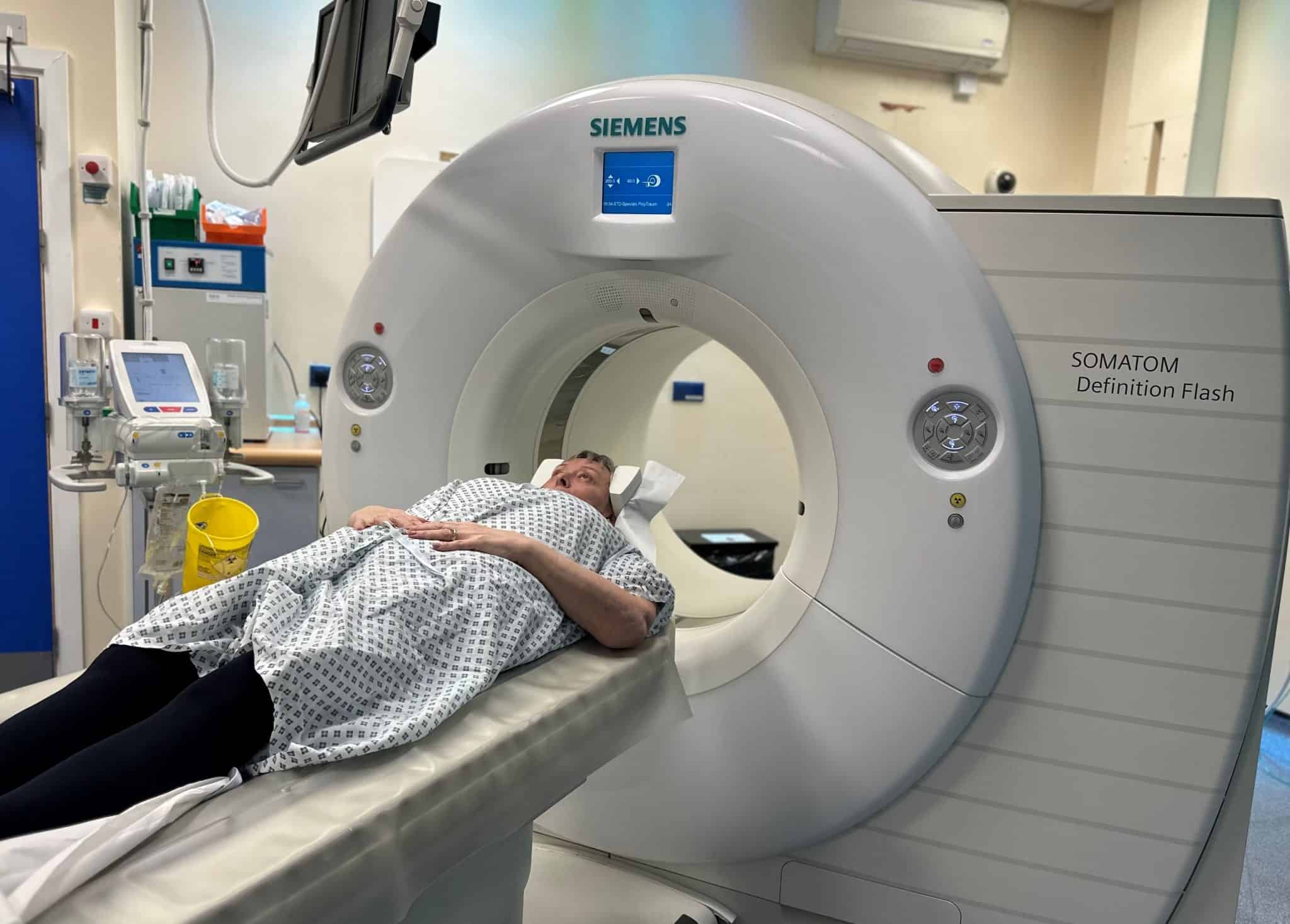
Stroke specialists Sandwell and West Birmingham NHS Trust can now diagnose the condition faster and more accurately thanks to artificial intelligence (AI) software accessed on their smart devices.
Patients who are rushed to Sandwell and City Hospitals with a suspected stroke, will undergo a CT scan with the results being checked by RapidAI – new software that processes images and detect brain abnormalities.
An alert is sent to the doctor which will be checked. If there’s a blood clot detected, the patient will be either injected with a clot-busting drug called thrombolysis, or where a large artery is blocked, will undergo a procedure, known as a mechanical thrombectomy, to remove the clot, restoring blood flow to the brain and preventing long-term harm. This will take place at a specialist neuroscience centre.
Dr Kamel Sharobeem, Consultant Stroke Physician, said: “I am delighted that we have launched this crucial cutting-edge technology to further improve timely assessment and treatment decisions for our stroke patients.
“Each minute of delay has the potential to cause an increase in long term disability to the patient and it’s vital treatment is given quickly. Utilising a digital platform to view images in a faster way enables decision-making and transfers for a thrombectomy to be as efficient and quick as possible.
“The clinical team still make the final decision, but the AI software allows the speedy transfer of images to review the scans (CT head and CT angiogram).
“Stroke is a life-threatening and disabling condition where the blood supply to part of the brain is cut off. For every minute that treatment is not given, a person will lose nearly two million nerve cells, increasing the risk of long term disability. If more patients with a stroke are then able to access thrombectomy, we know that this improves outcomes and reduces disability and dependency for patients.”
Watch the video to find out how it works:

